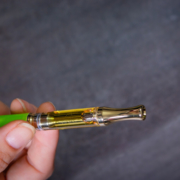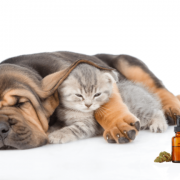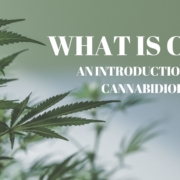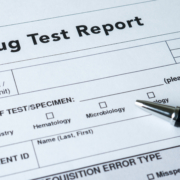A 2017 survey conducted by Consumer Reports found that 55 percent of Americans regularly take a prescription drug. Many of those who use prescription drugs also take over-the-counter drugs, vitamins and other dietary supplements. The survey found that many of those prescription pills may be unnecessary and could potentially do more harm than good – as the opioid crisis continues to claim 130+ lives daily.
Prescription drug use is at an all-time high, but what if there was an alternative with less side effects?
CBD as an Alternative
Cannabidiol or CBD, is one of 85 cannabinoids found in the cannabis plant that is being used effectively to treat several medical conditions. CBD is extracted from either the marijuana plant (marijuana-derived) or the hemp plant (hemp-derived).
Over the past few years, hundreds of CBD-related studies were conducted across dozens of countries. Many of the studies have contributed to the growth of understanding, and acceptance, of CBD.
Scientific and clinical research explores CBD’s potential as a treatment for a wide range of conditions, including anxiety, depression, epilepsy, high blood pressure, chronic pain, arthritis, autism, Parkinson’s, PTSD, ADHD, sleep disorders, and other neurological disorders.
We compiled just six CBD-related studies that we believe are essential to understanding the benefits of CBD.
Does CBD Get You High?
CBD and THC have very similar chemical structures, but they differ widely in their properties. This close association between CBD and THC is likely why people are hesitant to use CBD as an alternative treatment method. This study examines two prior studies, and their misinterpretations, to combat the notion that CBD causes a THC high.
The first prior study analyzed the changes in CBD when mixed with petri-dish stimulation of stomach acids. The results yielded the researcher conclusion that CBD does convert to THC when exposed to stomach acids.
The second study also suggested CBD may convert into THC after oral administration. The conclusion was based on human volunteers.
The Misinterpretations
The authors of this study noted that both prior studies were filled with misinterpretations. This was mainly due to two reasons.
- While CBD might convert to THC under certain simulated conditions, it has not been shown to occur in living organisms.
- The results of the human volunteer tests were taken out of context. Traces of THC were not only extremely minimal in the human volunteers, but the alleged THC was not present in urine samples.
Current Study Takeaways
The researchers note that while conversion of THC may occur under artificial conditions, “Over 40 years of research on CBD does not suggest a conversion of CBD to Delta9-Tetrahydrocannabinol (THC) and/or other cannabinoids in vivo after oral administration.”
The results of the study are important to highlight because of the common belief that CBD is a psychoactive compound.
CBD and Autism
Autism is often the result of too little inhibitions in the brain, which leads to heightened sensitivity to stimuli (such as lights, sound, touch, and smells) and abnormal social behavior.
Israeli researchers have found more compelling evidence that medical cannabis is an effective therapy for children on the autism spectrum. The study, led by Dr. Adi Aran, director of the pediatric neurology unit at Shaare Zedek Hospital in Jerusalem, found that cannabis treatment with a high concentration of CBD improved the condition of 80% of the children in the study.
80% of the children’s parents who participated in the study reported a decrease in problematic behavior, with 62% percent reporting that their child’s behavior improved significantly. The study also found that half of the children who participated in the study also reported an improvement in their level of communication, with 40% saying that their anxiety symptoms had significantly improved. A third of the participants did not show symptoms of anxiety before the study began.
CBD for Panic Disorder
Panic Disorder is a disabling psychiatry condition that affects nearly 5% of the worldwide population. Currently, long-term selective serotonin reuptake inhibitors (SSRIs) are the first-line treatment for PD; however, the common side-effect profiles and drug interactions may provoke patients to abandon the treatment, leading to PD symptoms relapse.
This study analyzed prior human and laboratory animal studies to support the notion that CBD exhibits anti-panic properties. The study looked at findings from prior studies such as human anxiety in public speaking and electrical stimulation in animal subjects.
The biggest takeaway from this study is that CBD is non-habit-forming and doesn’t decrease tolerance. Thus, it could be a solid alternative for “high potency benzodiazepines and antidepressant drugs in PD patients who are resistant to the current treatments.”
For anyone suffering from panic disorder or varying types of anxiety, relying on medications, this study is encouraging.
Can CBD Reduce High Blood Pressure?
Having high blood pressure puts you at risk for heart disease and stroke, which are leading causes of death in the United States. About 75 million American adults have high blood pressure—that’s 1 in every 3 adults.
This study explores the relationship between CBD and a reduction in blood pressure.
In a randomized, placebo-controlled, double-blind, crossover study, nine healthy male volunteers were given either 600 mg of CBD or a placebo. Two hours after CBD/placebo was administered, subjects performed various stress tests, such as doing math without a calculator, while their cardiovascular outputs were monitored.
The study found that CBD was well tolerated, and there were no adverse events on the day of stress tests. None of the subjects reported any adverse events over the following week.
Most notably, data showed that a single dose of CBD reduces resting blood pressure and the blood pressure response to stress, particularly cold stress.
CBD’s Potential Healing Effect on Liver Injury
Chronic alcohol consumption is a leading cause of alcoholic liver disease in the USA and worldwide. Despite significant advances in understanding of the pathology of alcoholic liver disease, the therapeutical options are still very limited.
This study looked at how CBD could affect subjects with liver injuries resulting from chronic and binge alcohol consumption. CBD was given to subjects (in this case, mice and human blood samples) that had been fed alcohol.
Findings concluded that CBD lessened the elevated liver enzymes and the increased liver triglyceride. CBD also reduced fat droplet accumulation. CBD may be a potential therapeutic treatment for alcoholic liver diseases “associated with inflammation, oxidative stress and steatosis.”
CBD’s Effect of Drug-Resistant Seizures
50 million people worldwide suffer from epilepsy, more than Parkinson’s disease and cerebral palsy combined, and it is the fourth most common neurological disorder in the United States. Of that 50 million, approximately 16 million are unresponsive to antiepileptic medication and other medical treatments.
This study’s goal was to evaluate the use of CBD as therapy for patients with refractory epilepsies (forms of epilepsy that do not respond to traditional medicines). The study was an observational study and was conducted by means of a survey addressed to the patient’s caregiver. The evaluation examined 15 patients with refractory epilepsies, who received cannabidiol over a period ranging from one month to one year.
The frequency of seizures decreased in 40% of the patients, 60% of the patients were seen to have control over 50% of their seizures and in 27% of them the seizures disappeared completely. Neurocognitive changes were also reported: behavior improved in 73%; 60% reported an improvement in language; in 50% sleep improved; 43% reported improvements in eating habits; and 100% said their mood had improved. The overall perception of the illness was that there had been improvements in 73% of respondents.
Results suggest a possible beneficial effect of CBD on the control of seizures and on the improvement of certain neurocognitive aspects in patients with refractory epilepsies.
Conclusions
We put together what we consider an essential list of CBD-related studies, but there are so many more topics that you can find studies on. We chose these six studies because we see a lot of CBD users with the related topics and so many questions about them.
In conclusion, the studies found that:
- CBD is safe to use.
- There is a major need for more research as most studies are performed for treatment of epilepsy.
- Most common side effects reported are tiredness, diarrhea, and changes of appetite/weight.
- CBD has comparatively fewer side-effects compared with prescription medication
- CBD can be used as a supplemental therapy









